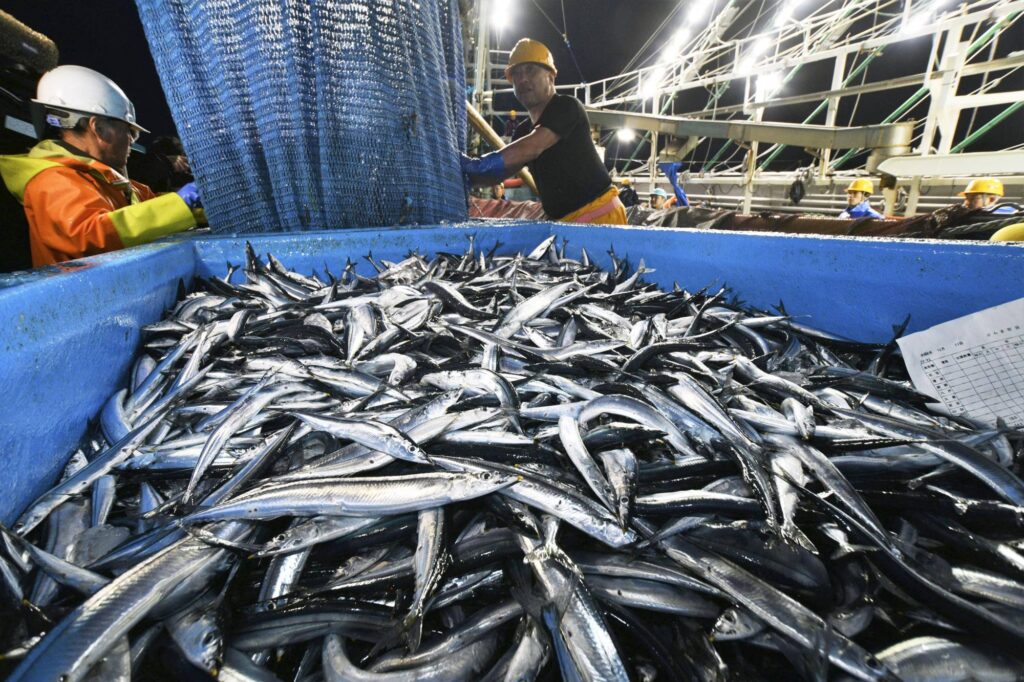Tokyo, 11 December, /AJMEDIA/
U.S., Australia, others to push for human rights-tied export controls
WASHINGTON – The United States said Friday it has agreed to work with Australia, Denmark and Norway to establish a “code of conduct” for applying export control tools to prevent technologies from being misused by authoritarian governments.
The launch of the Export Controls and Human Rights Initiative, for which Britain and France have also expressed support, was announced during a two-day virtual summit hosted by U.S. President Joe Biden to advance democracy in the face of challenges posed by what he views as autocratic countries such as China.
———-
U.S. inflation hits 39-yr high of 6.8%, fueling quicker Fed tapering
WASHINGTON – The consumer price index was up 6.8 percent in November from a year earlier, marking the sharpest rise in over 39 years amid recovery from the economic downturn induced by the coronavirus pandemic, U.S. Labor Department data showed Friday.
The pace of increase for the CPI, which measures the prices of a wide range of goods and services, widened from 6.2 percent in October, adding pressure for the Federal Reserve to accelerate the scale-down of its massive bond-purchasing program.
———-
U.S. sanctions target human rights abuses in China, Myanmar, N. Korea
WASHINGTON – The U.S. Treasury Department on Friday announced financial sanctions on 15 individuals and 10 entities for their alleged involvement in human rights abuses and repression in countries including China, Myanmar and North Korea.
It also imposed a restriction on investments in Chinese firm SenseTime Group Ltd., accusing the company over the development of facial recognition programs used to identify Muslim Uyghur minorities facing oppression under the Chinese government.
———-
Britain lifting post-Fukushima restrictions on Japan food imports
TOKYO – The British government has started the process to lift import restrictions on farm products from Japan, a measure imposed in the wake of the Fukushima nuclear disaster, potentially clearing the hurdles for such imports as early as next spring, the farm ministry said Friday.
In its assessment of the possible health risks from Japanese food imports, Britain has concluded that removing the import restrictions would not affect consumers in the country.
———-
SBI Holdings’ stake in Shinsei Bank nears 48% after tender offer
TOKYO – Online financial group SBI Holdings Inc. has boosted its stake in Shinsei Bank, nearing its tender offer’s upper limit of 48 percent and capping off a three-month bid that at one point turned hostile, a rare occurrence in the Japanese financial sector, sources close to the matter said Friday.
SBI now plans to apply for approval for setting up a bank holding company by the end of the year to take a majority stake in the midsize Japanese lender through additional share purchases, the sources said.
———-
Toyota to halt more lines, 9,000 cars at 4 plants to be affected
NAGOYA – Toyota Motor Corp. said Friday it will partially suspend operations of more domestic lines in December due to supply chain disruptions in Southeast Asia caused by the coronavirus pandemic, expecting a delay in the production of 9,000 cars in total at four plants.
The automaker will suspend another line at its Tahara plant in central Japan and its Miyata factory in the southwest from Monday through Wednesday, halting the production of 5,500 units after announcing Thursday it was suspending one line each at the two plants.
———-
Japan Cabinet adviser resigns amid flak for taking COVID subsidies
TOKYO – Prime Minister Fumio Kishida said Friday that Nobuteru Ishihara, a former secretary general of the ruling Liberal Democratic Party, resigned from his recently appointed post of special adviser to the Cabinet amid criticism that a political party he heads received subsidies for COVID-19 relief.
The development, a blow to Kishida who appointed Ishihara to the post only a week ago, comes as the political group was found to have received around 600,000 yen ($5,300) in pandemic-related subsidies last year.
———-
Japan sets FY 2022 tax plan focused on incentives to hike wages
TOKYO – Japan’s ruling coalition approved Friday a tax plan for fiscal 2022 focused on encouraging businesses to raise wages through tax incentives, aiming to boost household incomes in a country stuck in low inflation and help spur consumption dampened by the coronavirus pandemic.
Large corporations that raise wages by 3 percent or more and small businesses that hike them by at least 1.5 percent will be eligible for tax reductions, as the government of Prime Minister Fumio Kishida tries to deliver on his election promise of a redistribution of the wealth to support the middle class.

